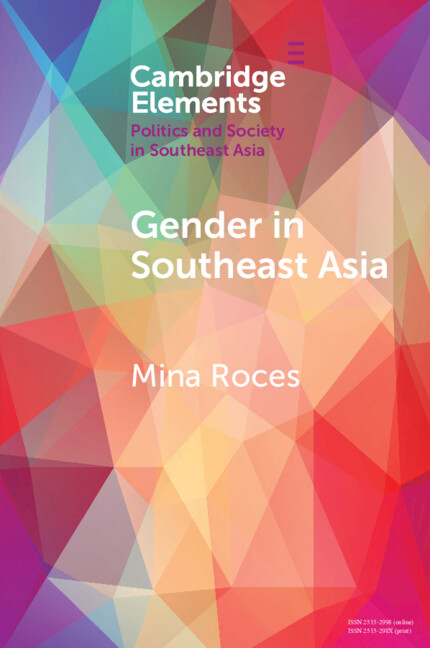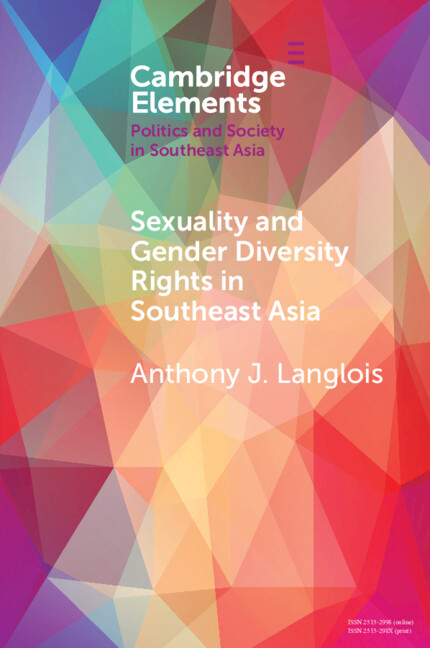Gender in Southeast Asia
This Element examines gender in Southeast Asia by focusing on two main themes. The first concerns hegemonic cultural constructions of gender and Southeast Asian subjects' responses to these dominant discourses. Roces introduces hegemonic discourses on ideal masculinities and ideal femininities, evaluates the impact of religion, analyses how authoritarian regimes fashion these ideals. Discussion then turns to the hegemonic ideals surrounding desire and sexualities and the way these are policed by society and the state. The second theme concerns the ways hegemonic ideals influence the gendering of power and politics. Roces argues that because many Southeast Asians see power as being held by kinship alliance groups, women are able to access political power through their ties with men-as wives, mothers, daughters, sisters and even mistresses. However, women's movements have challenged this androcentric division of power.
Reviews & endorsements
'... an accessible, impressively comprehensive and useful introduction to important themes within the vast field of gender studies in the region.' Wikke Jansen, International Quarterly for Asian Studies
'… Roces does an exceptional job explaining national developments and trends in terms of gender … Gender in South-east Asia is an accessible, impressively comprehensive and useful introduction to important themes within the vast field of gender studies in the region. Roces's observations on gender relations and kinship will surely serve as solid starting points for further research by scholars in the field.' Wikke Jansen
Product details
April 2022Paperback
9781108741637
75 pages
229 × 152 × 5 mm
0.14kg
Available
Table of Contents
- 1. Introduction
- 2. Gender Ideals
- 3. Religion
- 4. Authoritarian Regimes Fashion Hegemonic Gender Ideals: Indonesia and Vietnam
- 5. Desire and Sexualities
- 6. Power and Politics
- 7. Conclusion.





